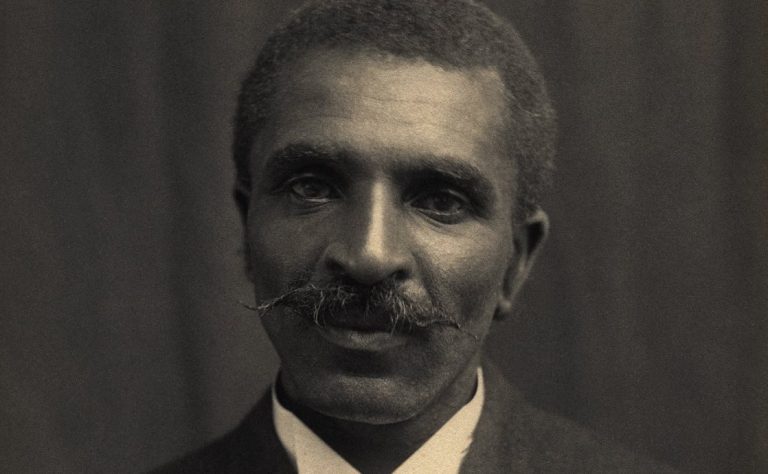Dr. George Washington Carver remains a luminary figure whose accomplishments as an inventor, educator, and advocate for the Bahá’í Faith have left an indelible mark on American history and culture. His journey is not just one of scientific achievement but a profound testimony to the values embodied in the Bahá’í teachings—unity, service, and the harmonious coexistence of science and spirituality. As we delve into the layers of his life and philosophy, we uncover the profound reasons for his enduring fascination among scholars, students, and admirers alike.
At the heart of Carver’s legacy is his innovative spirit. His breakthroughs in agricultural science, particularly his work with peanuts, sweet potatoes, and other crop rotations, revolutionized the agricultural practices in the southern United States. At a time when the soil was depleted from monoculture cotton farming, Carver advocated for sustainable agricultural practices that enhanced soil health. His insistence on the importance of treating the land with respect paralleled key Bahá’í tenets concerning the environment and the responsibility of humankind to steward the earth wisely.
Carver’s holistic approach to agriculture extended beyond mere scientific application. He envisioned a world in which farmers, irrespective of their socioeconomic status, could thrive through cooperative efforts and communities united for a common purpose. This aspect of his philosophy is echoed in the Bahá’í emphasis on community building and social cohesion. The idea that collective advancement is paramount resonates deeply with the Bahá’í belief in the oneness of humanity, which posits that true progress can only be realized when we work together to uplift each other.
Education was another cornerstone of Carver’s life’s work. Recognizing that knowledge serves as an indispensable tool for personal and community development, he devoted himself to teaching. He understood the transformative power of education, paralleling the Bahá’í belief that it is the birthright of every individual. Carver’s innovative instructional techniques, including his famous “mobile school” concept, catered to rural populations who often lacked access to traditional learning environments. His commitment to educating the masses, rather than a privileged few, encapsulates the ethos of equality central to the Bahá’í Faith.
Furthermore, Carver cultivated a deep connection with the divine, which informed his scientific practice and pedagogical philosophy. Throughout his life, he articulated an inseparable link between science and spirituality. He believed that understanding the natural world was a pathway to comprehending the Creator. The Bahá’í teachings uphold similar sentiments, asserting that true science and religion are in harmony and complement one another. This ideal fosters a worldview in which empirical inquiry is not only permissible but essential to enhancing one’s spiritual understanding.
His spiritual beliefs were not merely a private matter; they were a motivation for his advocacy. Carver championed the concept of serving others as an expression of faith. He was known to often state that his purpose was to serve humanity, a principle deeply embedded in the Bahá’í teachings. The spirit of service is not only a moral obligation but also a means of spiritual elevation in the Bahá’í theology. Carver’s work exemplifies this idea, as he tirelessly sought to empower disenfranchised communities through scientific knowledge and practical agricultural solutions.
Moreover, Carver’s engagement with the Bahá’í Faith further illustrates the intricate tapestry of his life. As a Bahá’í, he espoused principles such as global unity and the elimination of prejudice, which resonate with his life’s work aimed at uplifting marginalized groups. His advocacy for the Bahá’í teachings served to highlight the importance of intercultural dialogue and understanding—an essential concept in a world often marred by division. Carver lived out these ideals through his actions, fostering inclusivity and collaboration among diverse groups of people.
In addition to his agricultural innovations and educational endeavors, Carver’s artistic pursuits reveal yet another dimension of his character. He once remarked that “anything will give up its secrets if you love it enough,” a sentiment that embodies his profound respect for nature. This appreciation for beauty and craftsmanship is intricately weaved into many Bahá’í teachings, which glorify artistic expression as a means to elevate the human spirit and foster connections. Carver’s artistry in his work extended the practical into the realm of the aesthetic, echoing Bahá’í views that advocate for the cultivation of beauty in both the physical and spiritual worlds.
The awe surrounding Carver’s life extends beyond his scientific prowess; it embodies a deeper philosophical inquiry into how one can harmonize individual ambitions with collective welfare. His capacity to lead, inspire, and innovate speaks to the human potential when aligned with noble aspirations. His embodiment of Bahá’í principles inspires continual reflection on the importance of service, education, and community in pursuing one’s life mission. Through his journey, Dr. George Washington Carver serves as a paradigm of how the teachings of the Bahá’í Faith can be manifested in various aspects of life—science, education, and art—ultimately leading to a more profound understanding of our interconnected human experience.
In conclusion, the fascination with Dr. George Washington Carver transcends his impressive resume as an inventor and educator. His legacy invites us to reflect on fundamental human values, bridging the gaps between science and spirituality, individual achievement and community service, and the earthly and the divine. His life is a vivid tapestry woven with threads of compassion, ingenuity, and faith—a true exemplar of the teachings he so passionately advocated.
